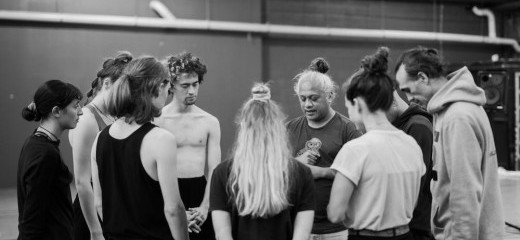
What Are Your Waters? (A kōrero with Jack Gray)
by nikolai mckenzie ben rema
These are the waters from which your ancestors drank, the water that sustained them, the waters that brought you here. So, I ask again in hopes that you get to drink from them one day and be nourished by your history, what waters are you?
From the rain that falls from the sky to the rivers that cleave through the mountains of Aotearoa, these waters brought the ancestors of the Māori people to the “land of the white cloud,” as it means in the Māori language.
Jack Gray, Ngāti Porou, Ngāti Kahungunu, Ngāpuhi, Te Rarawa, is a distinguished Māori contemporary choreographer, teacher, facilitator, and writer who I have gotten to know over the past few months in conjunction with thINKingDANCE’s, Decolonizing Dance Writing: International Exchanges Project.
We’ve had several conversations out of which disengagement from colonialism through the continuation of Māori cultural practices emerges as a recurring theme.
As a queer Caribbean immigrant in the United States whose Jamaican roots date back over three centuries, I too have been called to wade within my own ancestral streams over recent years, taking a cutlass to the thicket of interconnected, shifting identities of my ancestors across color and class lines over centuries, in an attempt to shake off the residue of colonial mindsets that persist in the Caribbean and throughout the African Diaspora.
Here, I find myself in a kindred place with Gray as he strives to weave communities to their indigeneity, binding them to their roots.
nikolai : What is decolonization? Is it a metaphor of a buzzword that appeases the colonizer more than those on the receiving end of the imposition of it? How does decolonization show up in your practice?
Jack: Recently, my family and I were subject to continued harassment leading to intervention with the police. We had to unpack the “real” truth. We’ve inherited a long history of colonization and our lives as Māori are vastly different from a non-Māori experience. We had to grapple with how we’d naturally assumed that we were the perpetrators of the conflict, and not, in fact, the victims of harassment from non-Māori people. As indigenous people of Aotearoa, we’ve normalized these types of incidents, accepting our vulnerable position due to land theft, lack of privilege due to the unfolding British invasion of Aotearoa, and subsequent loss of mana and authority among Māori people. Our socioeconomic class is a link to this history of erasure. But having the ability to step out of your known social programming, your assumed social order, and actively try to disengage from the predilections of colonization is key to detaching from it. To assert our mana by claiming a culturally safe space is a revolutionary act. We have to find ways to interrogate and push back against what we’ve been socialized into and envision different possibilities for our livelihood, security, and protection. In this envisioning, we have to call in creativity as resilience; we must use our intellectual and physical shapeshifting as a way to maneuver through a shift in consciousness from a colonized place to its opposite, a less colonized place.
Disinterested in creating reactionary work or engaging with creative processes that aim to patch up a superficial wound, Gray’s practice strives to depart from the legacy of colonialism by preserving integrity of self, envisioning another possibility for community livelihood, security, and protection altogether. By upholding traditions historically under threat, Jack’s workshops flow toward uplift and upshift with the implicit understanding that although we still inhabit a colonized world, potential for disengagement is always accessible to us.
nikolai : What are practices that keep you nourished and grounded in your indigeneity, that keep you zoomed out of the socialized, superimposed practices of colonialism?
Jack: I’m thinking about cultural values like aroha which is, on the outset, “love” as a cultural understanding. Aroha is a way of witnessing your inner breath from a place of love and integrity. The truth is that we’re here, in this reality, living within the shadow of colonization. Breathing, simply observing and inhabiting breath, is a great place to start. As long as there’s breath, there is potential.
Second, when welcoming someone new into a process, we acknowledge that new relationship from the beginning. We use our language to acknowledge the house, the body of the ancestor where the work will be hosted and we honor the whenua, the land, the embryo of humanity that nourishes all of us, nurtures us. We definitely acknowledge each other’s ancestral coordinates. In the Māori context, these coordinates are lineage markers of the mountains, streams, forests that one’s ancestors inhabited and were sustained by, also the canoes that brought them here to Aotearoa, across the Pacific, we acknowledge where they landed, the houses of those ancestors, the family groups and tribes. It’s quite an extensive way of bringing in over a thousand years of authority and knowledge into the space. But this identity can be daunting since of course it is “of us,” but we live with a complex layering of identities.
Most of us now are not born on tribal lands. Post-War, urban drift shifted us from tribal regions to urban areas and as a result people have learned about their histories later in life or bits and pieces of it. But we make space for this mix of our simultaneous identities, our varied ways of seeing and being in the world, through the spirit of manaakitanga; to witness the authority in another and to enable that to deepen and grow. Similar to “reciprocity” in the English language, there’s a nuanced layer of meaning, one that speaks to uplifting and honoring authority, the breath in another for the good of the greater community. Dance gives me an embodied language to find form for these cultural values that our ancestors would have practiced as well.
Using dance as a chalice to catch the deluge provided by the ever-giving and forever indigenous lands of Aotearoa, Gray has created a world of practices which call into the room a thousand years of knowledge and resistance in the face of colonialism, and grounding in ancestry. Jack Gray’s commitment to uplifting ancestral traditions is a fluid and articulate testimony of reinvigorating pride and celebrating the visibility of Māori cultural traditions while maintaining integrity.
nikolai: How do you keep the conduit to the ancestral plane open? How do you act as a custodian, or more, as a living ancestor for future Māori descendants?
Jack : Māori culture is very much a spiritual and oral tradition. Singing is so important to us because it is our way to connect to the vibration of the ancestors and the spirit realm. We also understand that there is a Sky Father and Earth Mother, that all of the other elemental forces are personified as atua or deities. When we acknowledge all of this, we create safety, raise the cultural vibration, and open the next pathway for our learning, listening, expanding, growing, and all of the elements we can use to exchange knowledge. I feel that knowledge transmission is central in Māori culture. But Māori indigenous creativity is most known for our ability to adapt and re-envision ourselves. This idea of whether we are solely contemporary, ancient, or a fusion isn’t where we get stuck; we‘re moving in the direction of, “how do I practice my connection to the things about my culture that I know, and how does it look like in these times.” This practice of connecting or reconnecting with indigenous identity is not something you ever apologize for or come at from a low vibration. Healing and growth from a colonized place to a more indigenous place has come from people recognizing intergenerational trauma that has been understood as not optional. As we start to reclaim our relationships to our stories, our cosmologies, and ultimately our futures, we become more centered and braver in what our purpose is.
Through the ever-present, ever-pressing crush of British colonial exploitation, this land has nourished the Māori people with the wisdom of mana-ancient authority--healing life essence-- in abundance. Even with colonial pressures to assimilate beginning before the mid 1800s--Aotearoa was colonized by the British between 1841-1907--the Māori people resisted. They have ebbed over the centuries, sometimes to a trickle under the thumb of colonial rule and its culture of violence but as movement artist Jack Gray so deftly puts it, “Māori people can never be disconnected.”
This project was funded by a grant from Critical Minded.
By nikolai mckenzie ben rema
October 14, 2021

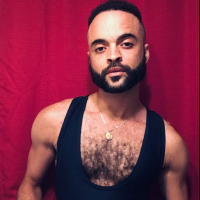

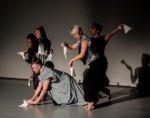
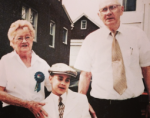
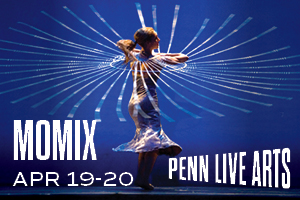
.png)


